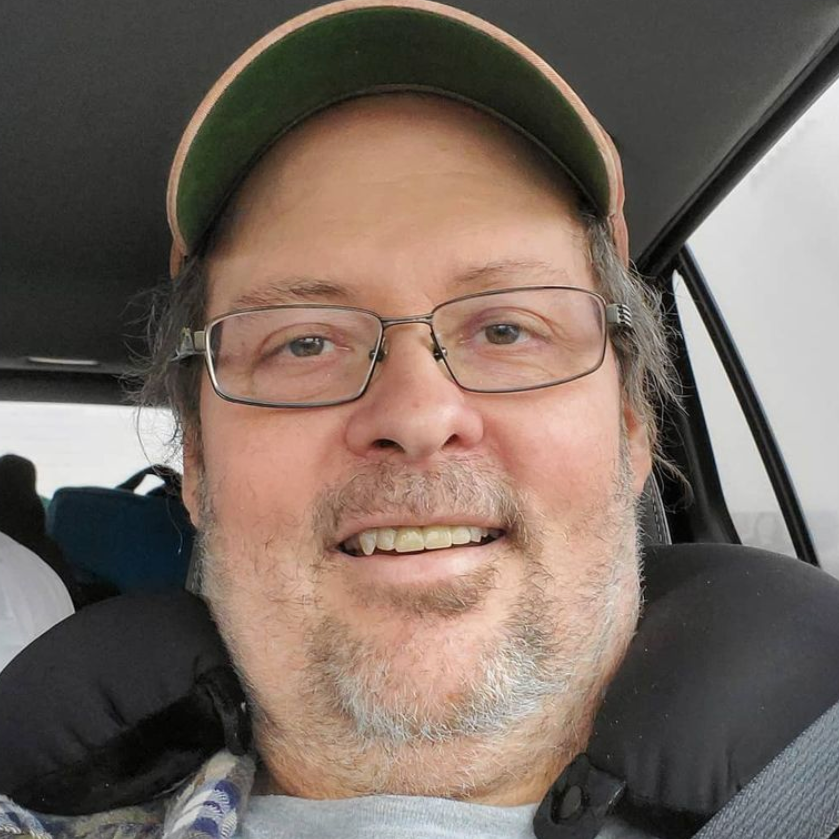Krystal’s Stage 4 IgM kappa Multiple Myeloma Story
Krystal, a 42-year-old mother from Georgia, shares her journey after being diagnosed with Stage 4 IgM kappa multiple myeloma in June 2022. Before her diagnosis, she experienced troubling symptoms like tachycardia, shoulder pain, and shortness of breath, but initially dismissed them as effects of aging, weight gain, and other factors. A critical moment arose when she felt a severe pain in her back, leading to an urgent care visit, where she learned it might be cancer. Her 2 daughters were present during the devastating diagnosis.
Interviewed by: Taylor Scheib
Edited by: Chris Sanchez
Krystal emphasizes the importance of self-advocacy in navigating cancer treatment. Initially overwhelmed, she grew to actively participate in her care, seeking multiple opinions and eventually finding a team that communicated effectively and monitored her condition closely. She initially underwent chemotherapy and a bone marrow transplant, which provided temporary relief. However, persistent relapses led her to pursue CAR T-cell therapy, a promising avenue that has since improved her condition.
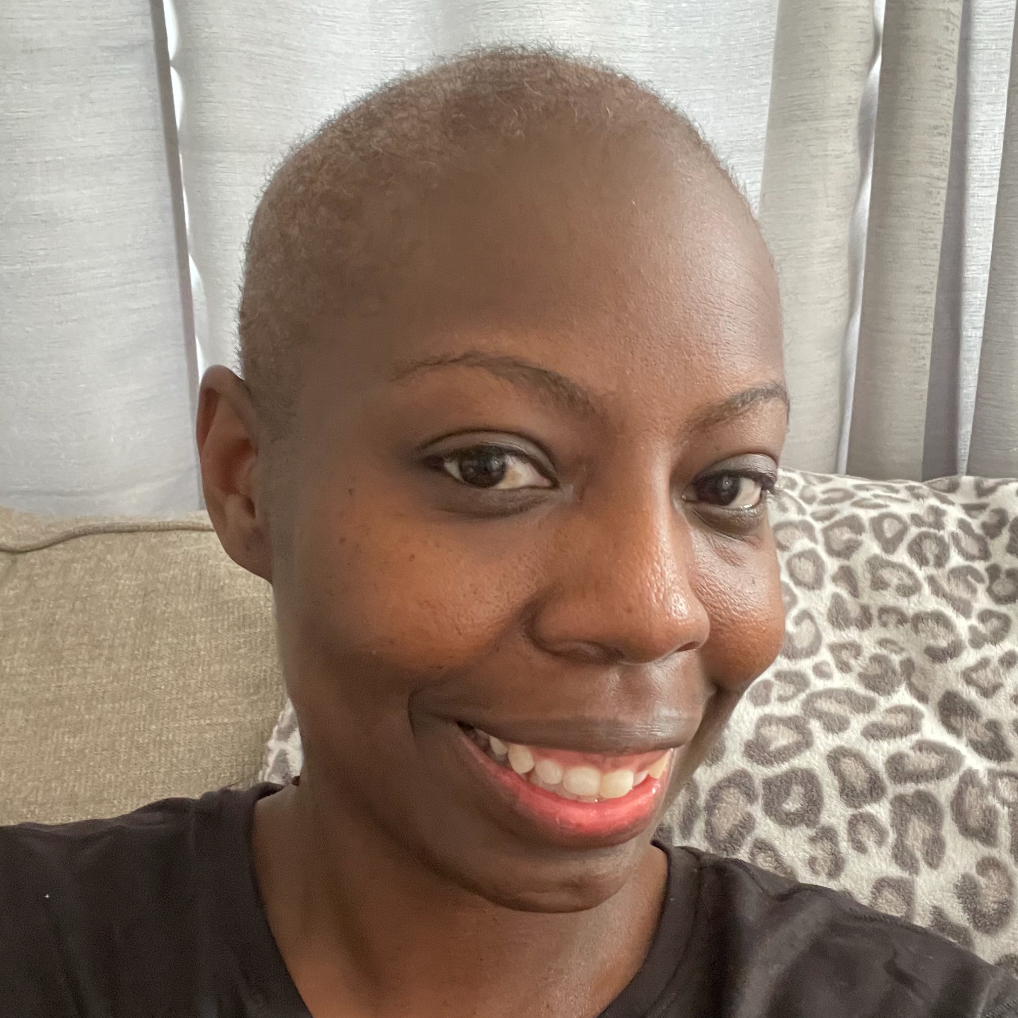
The journey has strengthened Krystal’s bond with her daughters, who have been her caretakers and constant support. She highlights the mental health challenges accompanying cancer, advocating for therapy and open communication. Despite the physical and emotional toll, she leans on her faith and resilience to maintain a hopeful outlook.
Community support plays a pivotal role in Krystal’s coping mechanism. Family, friends, colleagues, and online connections have provided essential emotional and practical support, allowing her to manage daily life and medical responsibilities. While acknowledging she is no longer the person she once was, she embraces her new reality and encourages others facing similar challenges to advocate for themselves, accept help, and stay encouraged. Her story is one of perseverance, faith, and the transformative power of love and community.
- Name:
- Krystal S.
- Diagnosis:
- IgM kappa multiple myeloma
- Staging:
- Stage 4
- Initial Symptoms:
- Back and shoulder pain
- Tachycardia
- Heart palpitations
- Shortness of breath
- Loss of appetite
- Fatigue
- Malaise
- Treatments:
- Chemotherapy
- Bone marrow transplant
- CAR T-cell therapy


Thank you to Johnson & Johnson for their support of our patient education program! The Patient Story retains full editorial control over all content.
This interview has been edited for clarity and length. This is not medical advice. Please consult with your healthcare provider for treatment decisions.
… as hard as myeloma is, you can still come out of it and still rock it.
Introduction
Hi, my name is Krystal. I currently reside in Georgia. I am 42 years old. I was diagnosed with IgM kappa Multiple Myeloma in June 2022.
I am a mother of two beautiful young adult daughters. I am an accountant. I love light hiking, walking on trails, parks, painting, and just spending time with family when I can.
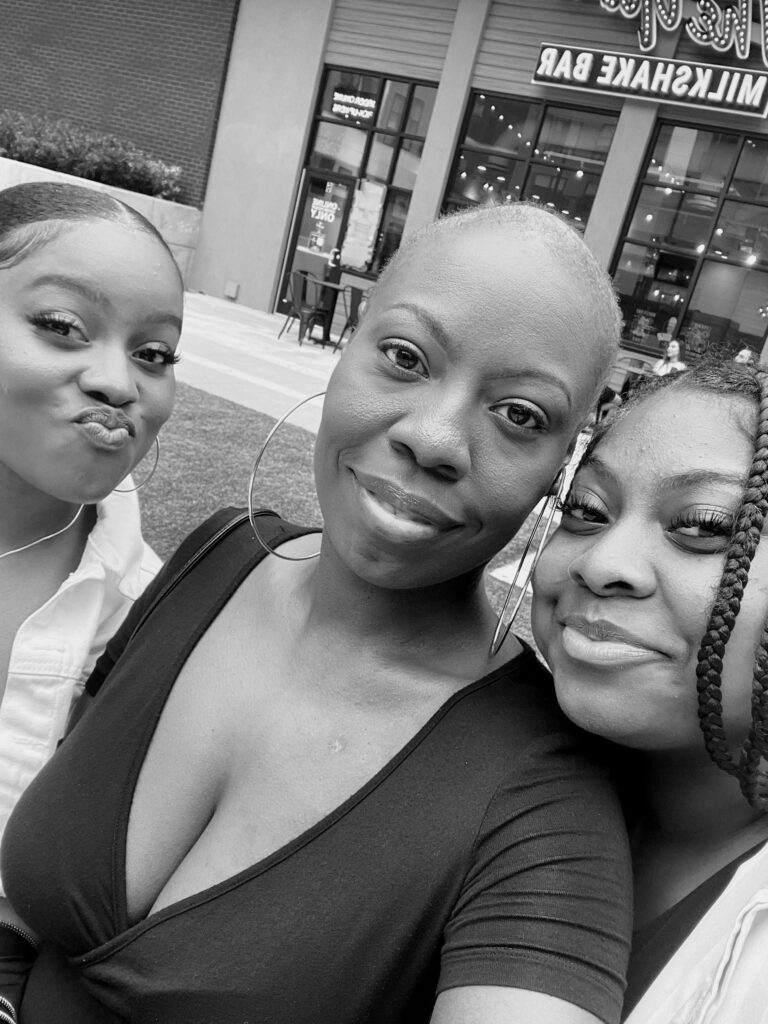
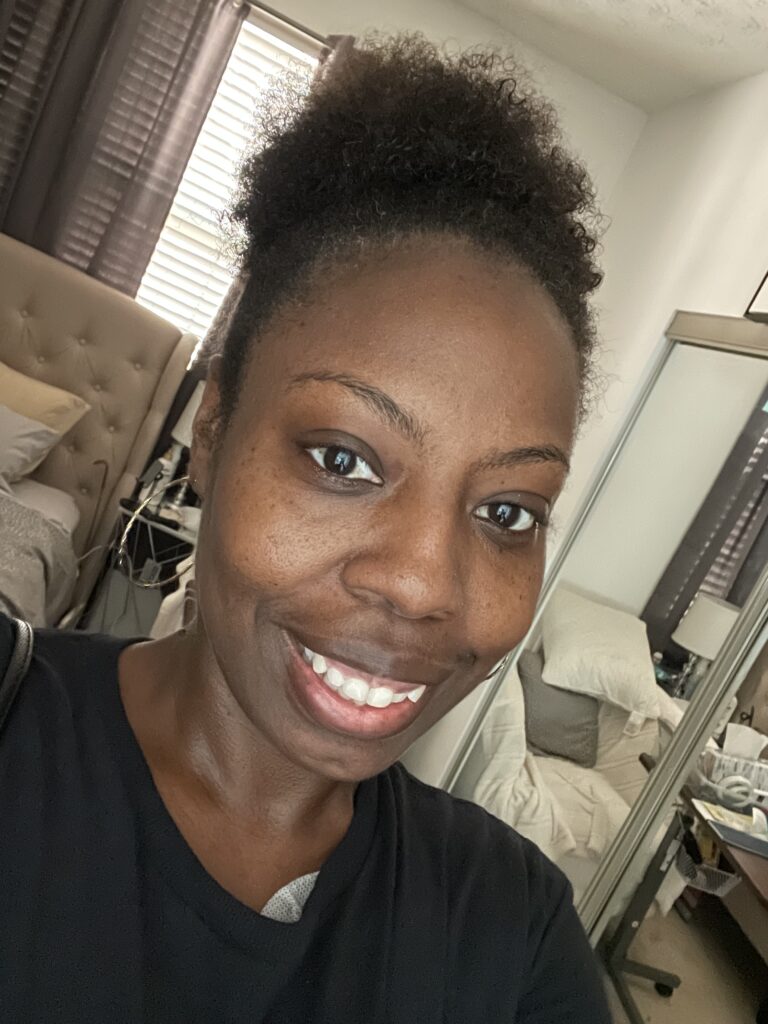
Pre-diagnosis
Before I got diagnosed with multiple myeloma, I was having tachycardia, shoulder pains, heart palpitations, shortness of breath, nausea, loss of appetite, and back pain. My resting heart rate was at 130 beats per minute, which is not normal at all. And these things were not getting better with over-the-counter medicine.
I was also experiencing some weird pop-like sensations. After I felt the first pop, which was on the right side of my chest area, I went to the doctor and they told me that I had probably pulled a muscle. They did do a chest x ray, but that was clear. And after that, the shortness of breath progressively got worse, as well as the heart palpitations.
I went to the doctor again in probably the second week of June 2022, and I got an EKG done. It was normal sinus. And then the next day, I felt another pop, this time on the left side of my chest area. I didn’t go to the doctor because of the diagnosis last time.
About a week after that, I felt and heard a really loud pop in my back and fell to the ground in excruciating pain. Later on that evening, I ended up going to urgent care and they did a bunch of tests and scans. That’s when they told me that it looked like cancer. I was finally diagnosed with multiple myeloma in June 2022.
I just couldn’t put my finger on what was happening to me. I would blame it on things like my age, the fact that I had gained weight, and so on. It was just extremely frustrating because I didn’t have any answers and I couldn’t figure it out. But never in a million years would I have thought it was cancer.
Reaction to the diagnosis
When I heard that, looking back, the first word that comes to mind is devastation. We cried so hard that day. It was just unbelievable. And it really felt surreal — this can’t be happening. There is no way that I have cancer.
My daughters were with me at that time. We were just heartbroken. I think I blanked out at that point, and I don’t really remember anything else until one of the days I was in the hospital.
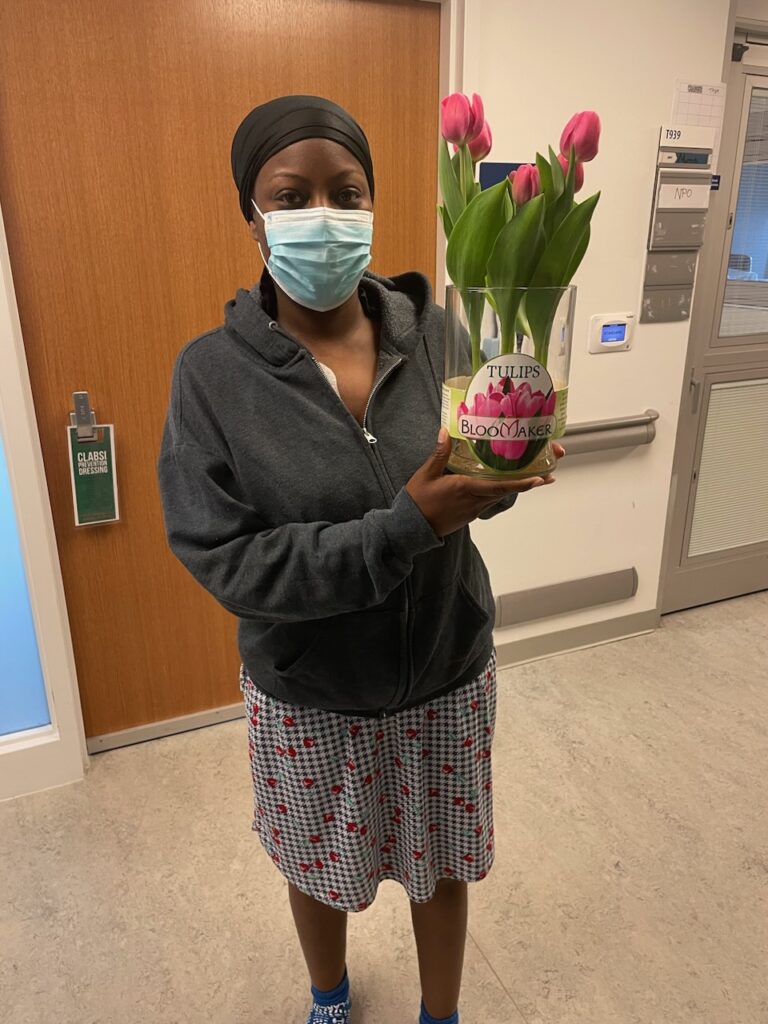
There was so much I had to learn. I have extensive bone damage, including lesions literally all over my body from the skull, all the way down. So I was confused — how is it a blood cancer? You’re talking about my bones all the time. They did explain it, but there was just a lot going on.
But the doctors really did educate me. And then I was overly consumed with trying to learn about multiple myeloma and read and do my own research.
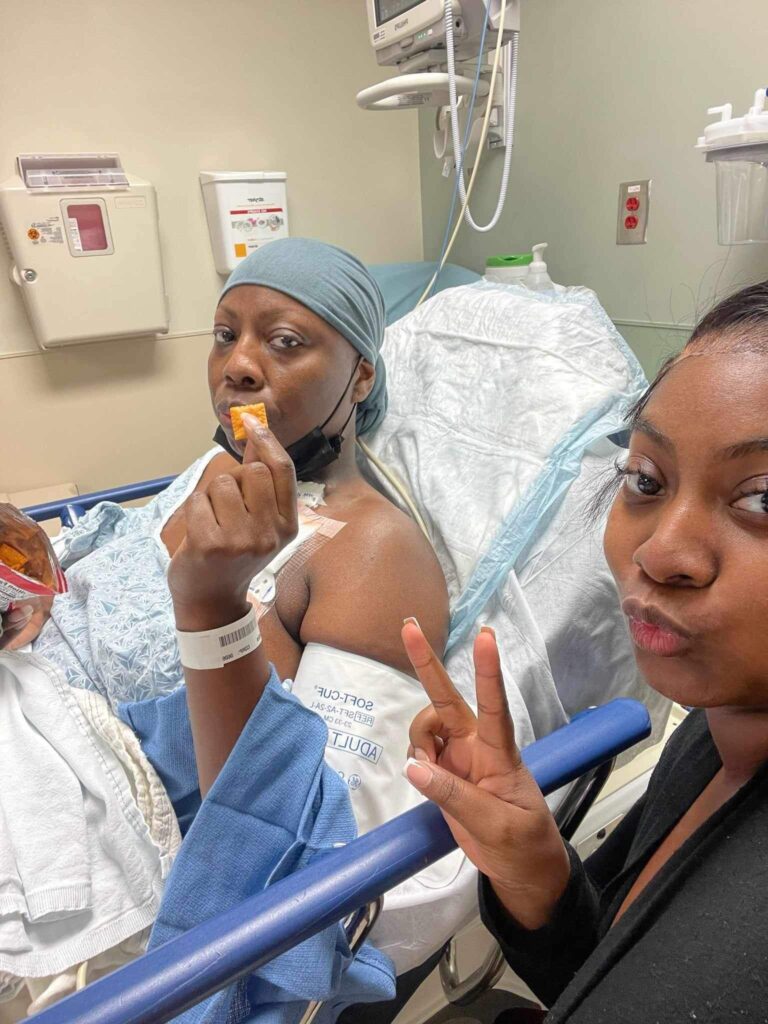
Finding the best care
I saw a doctor while I was in the hospital, and she is still currently my oncologist. I did also see a multiple myeloma specialist, which is something that other multiple myeloma patients should also consider doing. So I had that team of doctors to support me.
However, that team was not the best. I just feel like the communication wasn’t there, and I really feel like they dropped the ball with me. I also don’t think they were monitoring me as closely as I needed them to.
So now I see another specialist, and this team is awesome. They are really on top of things. I’m getting blood work, bone marrow biopsies, and bone surveys, which are X-rays.
Also, the communication is great. They have different numbers that I can call anytime and I can ask them as many questions as I want. They will call me back. I’m always going to get an answer. If they don’t know something, they’re going to figure it out.
They’re also making sure to monitor me. Right now, it’s not as often as before, when it was as often as every day, even on weekends and holidays.
The importance of self-advocacy
I think self-advocacy is one of the most important things that you can have when you’re dealing with cancer. In the beginning, I was so scared. I didn’t know what was going on. And so I was just going with the flow. But I’ve been in the game for a couple of years now, and so I’m asking all the questions.
You just have to speak up. I mean, let the doctors know how you feel. If you don’t want to do something, let them know and discuss it with them. And maybe there are other options. They should be talking to you about those things.
It’s your body and it’s your life, and you deserve the best. I mean, it is so hard going through this, and you need to have a team that you feel like is for you, and who’s going to support you no matter what.
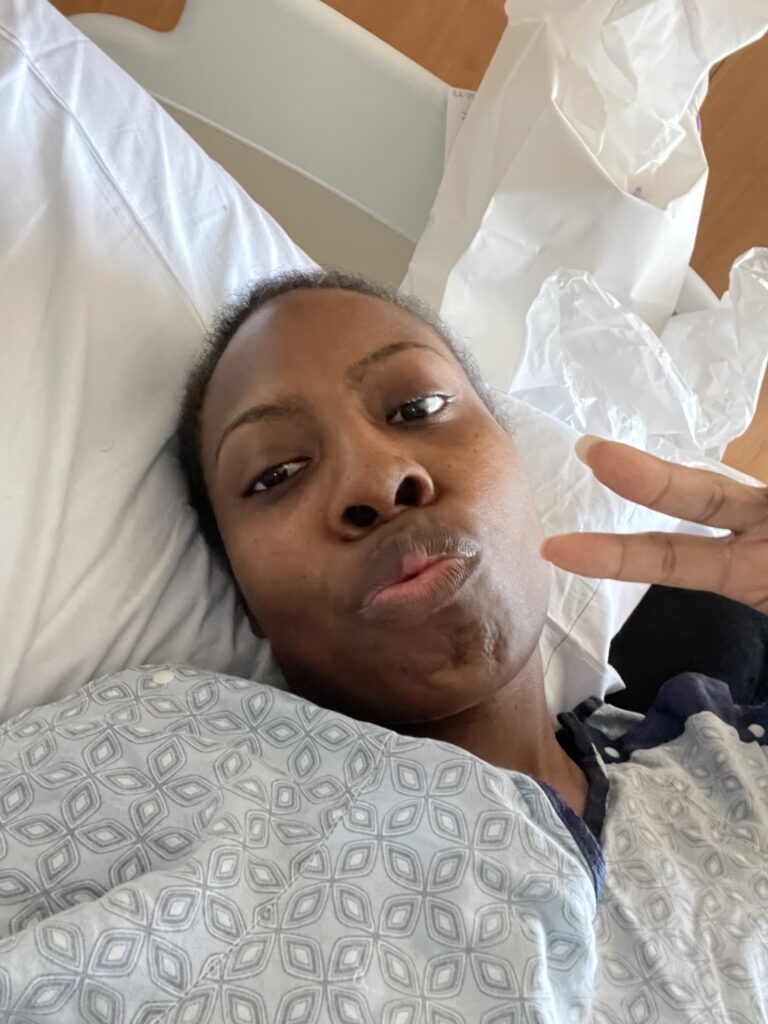
I’ve talked to my specialist about getting the vaccines again. I’m on the fence about that. And she said, that’s okay. If you don’t want to, you don’t have to. She explained to me, it’s about exposure and you might have to do some lifestyle changes, but if you don’t want to, you don’t have to. And I love that.
Definitely speak up. I know, sometimes it can be intimidating, but you just have to. You’ll get used to it.
I keep going and fighting because I love life and I want to be here.
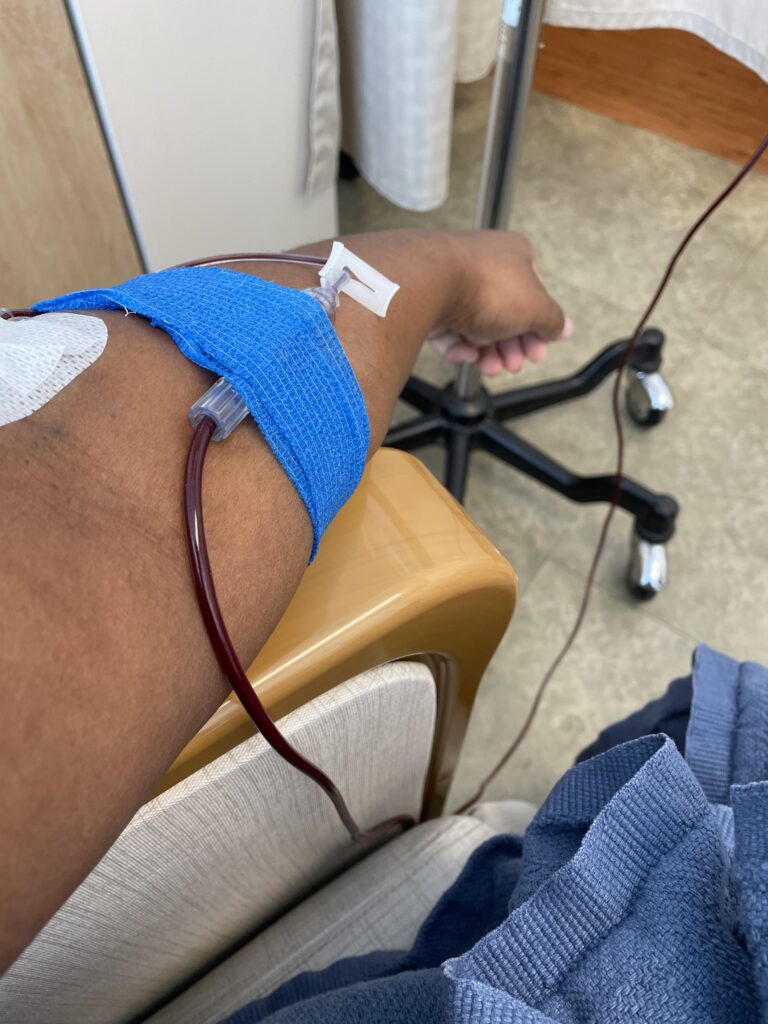
Treatment plan for IgM kappa multiple myeloma
Chemotherapy
I first started intravenous chemotherapy in August 2022. Initially, I would have to go twice a week for that IV chemo, and each session took about 4 hours or so. I wasn’t doing well in the beginning, so I did pills as well, daily for 21 days and then off for a week.
I didn’t feel really bad. I mean, I was sleepy because I had pre meds. And then after the second treatment, I was starting to feel better. And so then after that, I just got better and better.
However, I ended up relapsing at least 2 or 3 times. And usually when I relapse, I know something’s going on. My body just feels prickly and I get a little achy. And the fatigue gets a lot worse. That’s how I know — oh, something’s happening.
Bone marrow transplant
I had my bone marrow transplant on February 28th, 2023. I would say that the procedure itself is simple; everything before the transplant, as well as the recovery, is all the work.
So beforehand, I got a large dose of chemo and that made me really fatigued. I also experienced nausea, mild vomiting, and diarrhea. And then I got my transplant, which took just 10 minutes and I felt fine immediately afterwards.
After the procedure, you just build up strength. You go through a basement period where you really, really feel bad, where your immune system plummets down to nothing. And then it ramps up.
It took me about 2 weeks before I felt better. And then that’s how long you’re usually in the hospital, or at least it was for me.
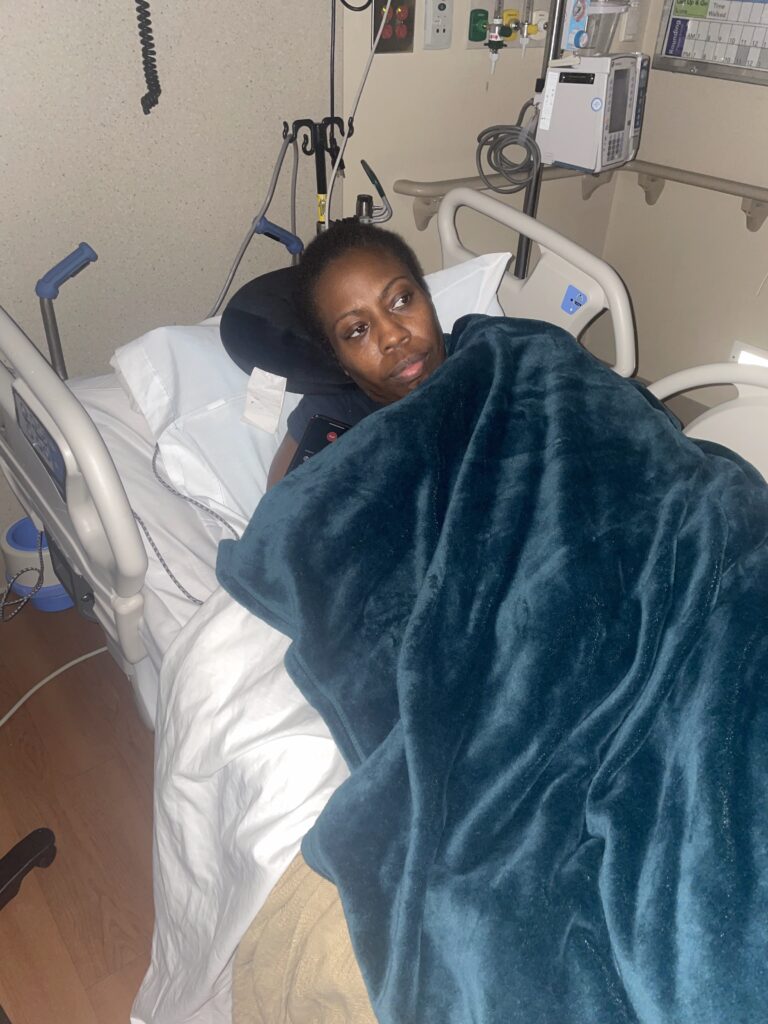
But after my bone marrow transplant, I quickly relapsed. The bone marrow transplant ended up lasting me maybe 2 or 3 months at the most. And the old specialist that I had didn’t have a plan, and so my oncologist was trying to figure out what to do next. That’s where I feel they dropped the ball. The myeloma had gotten out of control, and then finally I started another chemo regimen.
And that is when I started seeing the new specialist, and she told me, since the bone marrow transplant did not work for you, you need to do CAR T if you relapse again. And so we had a plan. So when I was in the hospital for that month, it was so I would stabilize in order to get CAR T.
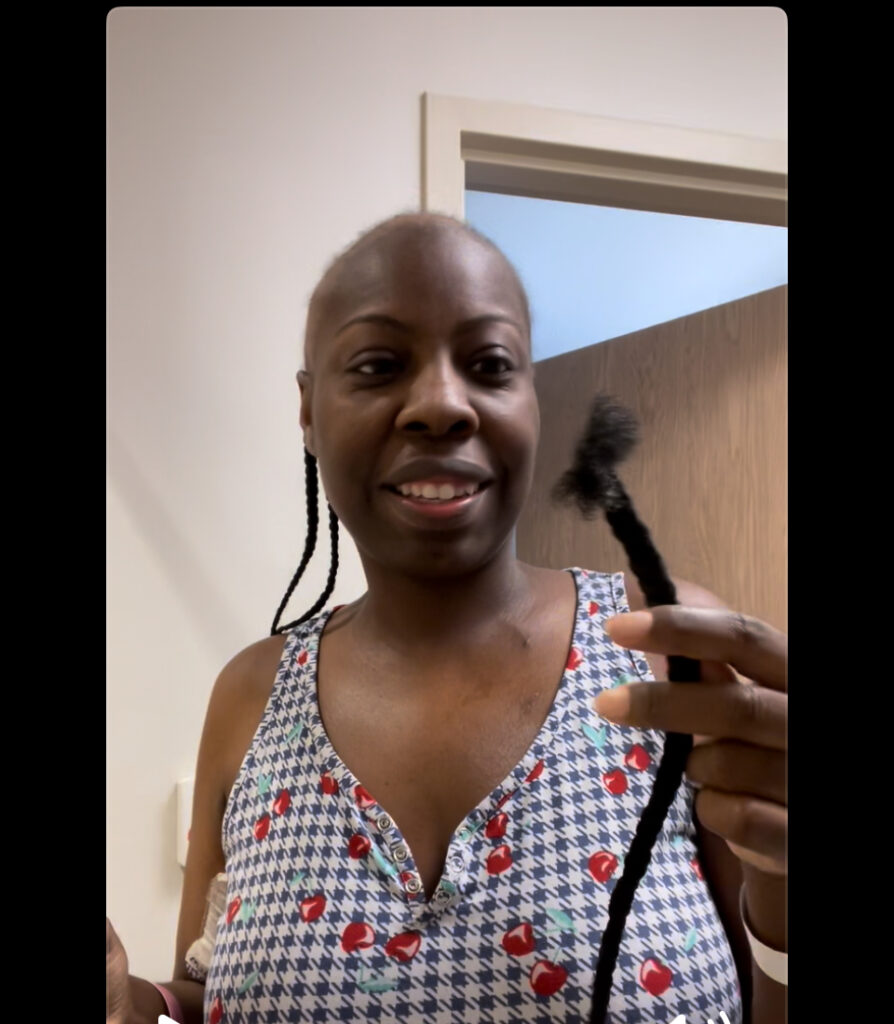
CAR T-cell therapy
Just like with a bone marrow transplant, there’s a lot of stuff that you have to do prior to getting CAR T. There are so many appointments and so many tests. And then finally you get to the CAR T procedure itself.
I had my CAR T procedure on September 3, 2024. It took me maybe only 15 minutes. As an aside, it tasted and smelled like tomatoes to me, and they say it can taste like tomatoes or creamed corn for some people.
After CAR T, my body would feel sore, but other than that I would be feeling fine.
I’m done now with CAR T and I’m feeling good.
It’s not my time to go yet. I am too young.
So I have to fight and get through it.
Her motivation
I keep going and fighting because I love life and I want to be here.
I have 2 beautiful daughters that I want to be here with. It’s not my time to go yet. I am too young. So I have to fight and get through it.
People probably wouldn’t believe me if I were I tell them all the things that have happened. But yeah, I’ve gone through them. I’m a resilient person, and I’m truly blessed. And I’m thankful that I’m here and I’m going to keep fighting.

My daughters are amazing. They have taken care of me throughout this whole time. They literally stopped their lives to take care of me, and I just appreciate them so much. We’ve gotten a lot closer, and we were already close. But, you know, this brings a better bond. Because they are with me every step of the way. And they’re my cheerleaders.
My girls have gone through a lot. It’s [a parent’s IgM kappa Multiple Myeloma diagnosis] mentally draining on them as well. But they handle it well. They rely and lean on each other a lot. We definitely keep the communication going. I’ve had them in therapy. We just keep praying and just try to keep positive.
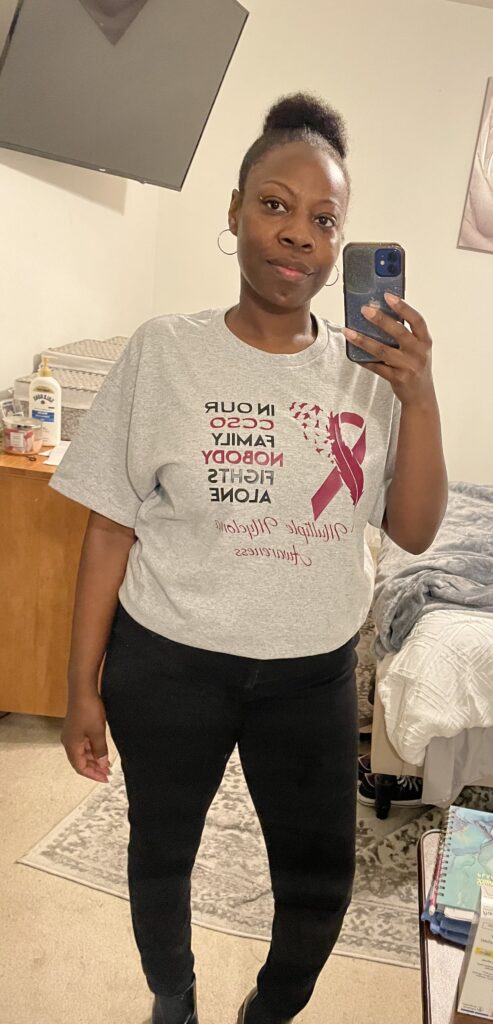
Her mindset
I haven’t been diagnosed with multiple myeloma that long, I’m going on 3 years. Having relapses as often as I have had is tough, but I have to keep going.
Mental health, I think, is a huge factor. I don’t think it gets discussed enough. I think anybody that has a cancer diagnosis, and maybe their family too, would need to speak with somebody. I will be honest. I haven’t talked to a therapist as much as I would like to, but I have seen one, and it absolutely helps.
I also try not to stay in a negative mindset. I mean, I allow myself to feel all the feelings. They are valid. I’m frustrated, angry, sad, and I do get depressed sometimes. Though I allow myself to be in those feelings, I try not to stay there that long. You have to come up out of it and just get through it. And, really, it’s a day by day thing.
I’m never going to be the same person I was before all this happened. Not ever again.
But it’s okay.
Creating community
Community is so important. You need to have a support system, or you would just be a mess.
I have lots of support from my daughters, my mother, my friends, my family, my coworkers. Without that support system, I don’t know how I would have survived.
People want to help, and there are a lot of good people out there in the world. The little things count so much and are so helpful. I’ve had people bring us groceries or just bring us a meal, come down to visit and clean the house or whatever. That is super helpful.

Coworkers have given me leave donations, and that has been such a blessing, to be able to still pay the bills even though I’ve been in and out of work.
I’ve done online chats and connected with people on Tiktok. That helps. Because just meeting people living with the same thing as you is just really heartening. It really has been almost therapeutic. Because it felt like I found my people.

Her life right now
I’m never going to be the same person I was before all this happened. Not ever again. But it’s okay.
It is hard. You know, you think back sometimes — oh, man, I used to be able to do this or that, or, I used to be so lively — that’s no longer the case. It’s hard and it’s definitely challenging. It takes time to get used to.
But I feel like you’ll be fine once you get to that point where you realize and accept that you’re no longer that person you used to be, but you’re just a different version of that person. I’m still the old Krystal, but I’ve just had to tweak some things.
It did take me a while, though, you know? And even now, I’m kind of hard on myself, so just giving myself grace, learning how to do that.
My biggest piece of advice is to stay encouraged.
What Krystal wants to share

I always feel like multiple myeloma has taken literally everything from me.
It’s taken my vision. At one point, I couldn’t walk. I was using a wheelchair. I was in excruciating pain. I’ve had strokes. I’ve had everything. But I’ve come out of it like nothing ever happened.
Hope is a good word. Yes, I hope for the best. And I think I go more towards faith. My faith has gotten stronger during all of this. And that is really what I hold on to.
My biggest piece of advice is to stay encouraged. It is going to be so rough at times. You’re going to feel waves of emotions. It will be like a rollercoaster. But just stay encouraged. Speak up and ask all the questions. Be your own advocate. Accept help. You’re going to need that support from others, and you will be surprised at how many people really want to help you and will support you throughout all of this.
So as hard as IgM kappa multiple myeloma is, you can still come out of it and still rock it.

Special thanks again to Johnson & Johnson for their support of our patient education program! The Patient Story retains full editorial control over all content.

Inspired by Krystal's story?
Share your story, too!
Related Cancer Stories
More Multiple Myeloma Stories
Tim H., Multiple Myeloma
Symptoms: None that could be identified; cancer found through CT scan for gallbladder removal
Treatments: Chemotherapy, stem cell transplant
Scott C., Refractory Multiple Myeloma, Stage 3
Symptoms: Pain in hips and ribs, night sweats, weight loss, nausea
Treatments: Clinical trial, chemo, kyphoplasty, stem cell transplant
Jude A., Multiple Myeloma, Stage 3
Symptoms: Pain in back, hips and ribs; difficulty walking
Treatments: Bilateral femoral osteotomy, reversal due to infection; chemotherapy

